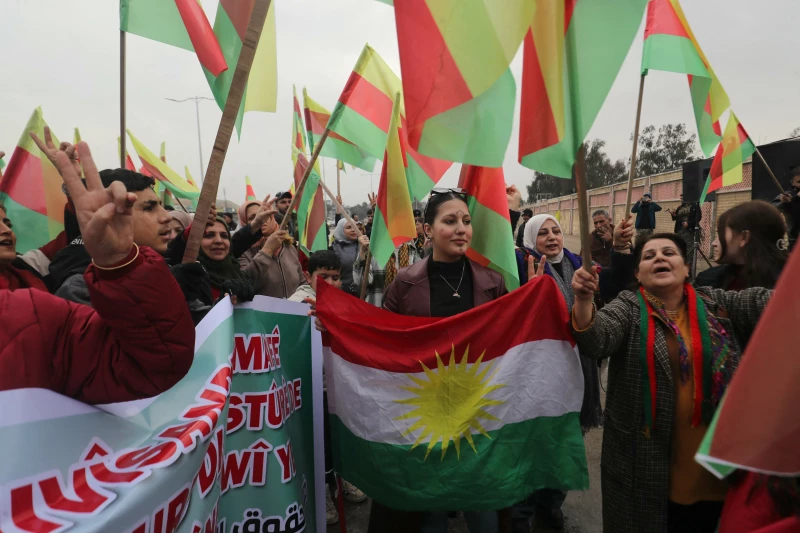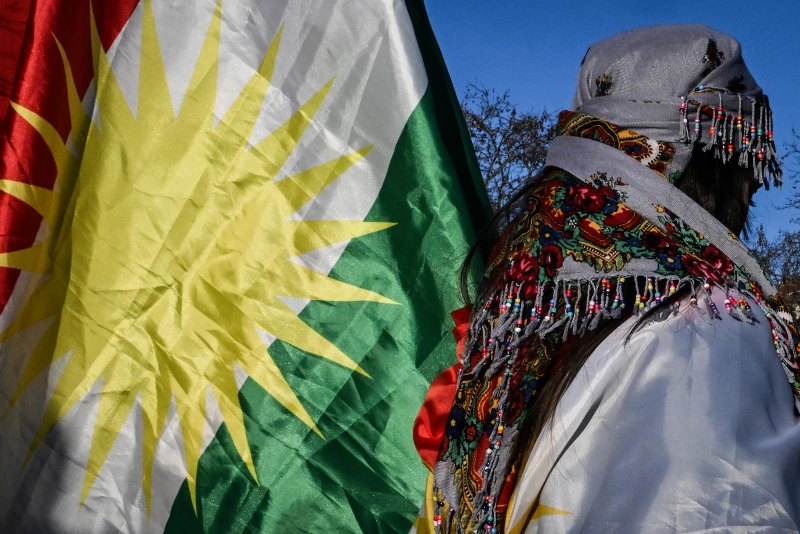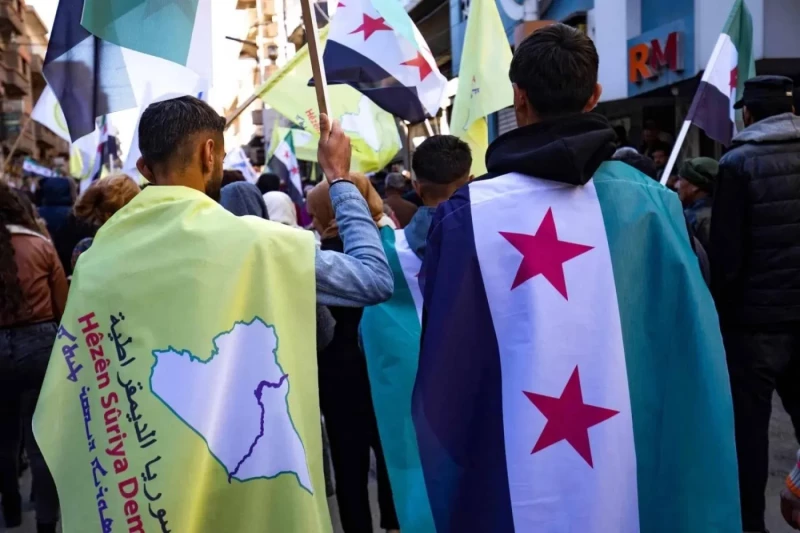On January 16, Kurdistan Democratic Party (KDP) President Masoud Barzani met with Syrian Democratic Forces (SDF) General Commander Mazloum Abdi in Pirmam, Erbil. This long-overdue meeting was welcomed by Kurds across political and ideological divides in the region and beyond.
Barzani’s office stated that the leaders discussed “adopting a joint stance” to “safeguard [Kurdish] rights” through dialogue with Syria’s emerging authorities. Abdi echoed this in a post on X, emphasizing themes of “Kurdish unity” and achieving rights “peacefully.” The meeting highlighted that despite historical and political differences, Kurdish leaders can find common ground when necessary.
But what can this rapprochement between two dominant Kurdish forces achieve? Reports suggest the discussions, among other things, centered on two priorities: Stopping Turkish attacks on Northeast Syria/Rojava and ensuring Kurdish self-rule in Syria’s future.
Given the realities they face and the efforts already underway, Kurds should focus on a three-pronged approach: fostering unity, creating disincentives for Turkish hostilities, and leveraging external pressure.
Building internal unity
Unity among Syrian Kurds is essential for strengthening their position. Given the interconnected nature of Kurdish politics in Iraq, Syria, and Turkey, sustained dialogue between Barzani and Abdi—or their representatives—is crucial.
A practical outcome would be integrating the Kurdish National Council (ENKS), aligned with Barzani’s KDP, into the autonomous administration of NE Syria/Rojava. Additionally, the SDF and local security forces should incorporate ENKS-aligned Roj Peshmerga forces.
Kamiran Hajo, a senior ENKS official, stated in a phone conversation that his group’s inclusion could help alleviate Turkish concerns about Kurdish governance in northern Syria. However, he admitted “there are no guarantees.” This would not be the first attempt at unity between ENKS and SDF-affiliated groups—at least two agreements have failed in the past. Success will depend on mutual commitment and a willingness to compromise.
A unified Kurdish front would not only strengthen their political position but also improve their standing with Western allies who push for a unification of Kurdish ranks. The United States is particularly counting on Syrian Kurds as its key local partner in countering the Islamic State (ISIS) in Syria.
Disincentivizing Turkish hostility
The second strategy is to disincentivize Turkey from continuing its aggressive policies toward Syrian Kurds.
Abdi revealed in a January 19 interview with Al-Arabiya that he had asked Barzani to mediate with Turkey to halt its attacks.
Transforming the adversarial relationship between the Turkish state and the broader Kurdish movement into a cooperative one remains a challenging goal, but not an impossible one.
Recent developments, such as renewed dialogue between Turkey and the Kurdistan Workers’ Party (PKK), offer a glimmer of hope, particularly considering that Turkey views the SDF as an extension of the PKK. Although Turkish President Recep Tayyip Erdogan’s intentions are often viewed with skepticism, a temporary ceasefire or limited agreement could stabilize the situation in Syria and prevent further Turkish incursions.
This, if nothing else, buys Syrian Kurds some time. Even a small shift in Turkish policy could significantly impact the survival of the Kurdish-led administration in Syria.
For the broader Kurdish movement, including the PKK, this moment calls for pragmatic decisions. Maintaining Kurdish autonomy in Syria may require compromises to prevent catastrophic outcomes under sustained attacks by Turkish drones and Turkish-backed Syrian National Army militants.
Applying external pressure
Diplomatic pressure from international and regional powers is the third critical element. The United States, European nations, and even Israel should leverage their influence to urge Turkey to cease its military operations.
Ankara appears to be betting on potential changes in US policy under the new Trump administration—such as a withdrawal from Syria or a deal to transfer control of SDF-held areas to Turkey and its proxies.
However, bipartisan support for Syrian Kurds in Washington remain strong. During a recent Senate confirmation hearing on January 15, both now-Secretary of State Marco Rubio and Democratic Senator Chris Van Hollen voiced strong support for Kurdish forces and warned Turkey against military action.
Western nations, especially the US, can play a key role in mediating between Turkey and Syrian Kurds. Including ENKS in Syrian Kurdish governance could further assuage Turkish concerns and present a united Kurdish administration as a viable partner for stability in the region.
For Turkey, a longer-term view would reveal the benefits of resolving Kurdish issues through negotiation rather than conflict. Reaching an agreement with the Kurds could improve Turkey’s domestic stability, reduce threats from groups like ISIS and other destabilizing forces in Syria, and bolster Ankara’s influence in Syria and the broader region, while also providing trade and investment benefits.
Western pressure will be crucial in facilitating Kurdish engagement with Damascus and encouraging the new Syrian authorities to accept some degree of Kurdish administrative autonomy and recognize their cultural rights. Improved relations with Ankara would further enhance Kurdish leverage with Damascus, reducing the need for Kurds to negotiate solely on Damascus’s terms.
A critical juncture for Kurds
The stakes for Kurds in the region are high. This moment bears an uncanny resemblance to the early 20th century, when the Middle East’s political map was redrawn, at the expense of Kurdish aspirations. Today, as the region undergoes another transformation, Kurds have both opportunities and challenges.
Unlike the past, Kurds now govern two autonomous regions in Iraq and Syria, possess organized armed forces, and maintain an extensive web of foreign relations and partnerships. These developments provide Kurds with resources and agency to navigate the current regional dynamics.
However, the threats remain significant. Regional powers—Turkey, Iran, Iraq, and Syria—continue to exploit divisions among Kurds to maintain dominance. Judging from widespread popular and elite reactions in Kurdish media and on the streets, Kurds want the unity displayed by Barzani and Abdi to extend beyond symbolic gestures to actionable steps.
Indeed if they want to safeguard their gains and strengthen their position amid regional upheavals, Kurds must work together. The collapse of the Kurdish administration in Syria could set a precedent for Baghdad and Tehran to intensify pressure on the Kurdistan Region in Iraq, potentially leading to its downfall.
The choices made today will shape the future for Kurds. Either they leverage this moment to solidify their role in the region, or they risk facing renewed oppression and marginalization. For millions of Kurds, Barzani and Abdi’s meeting is a promising start, but achieving lasting progress requires strategic vision, compromise, and collective action.

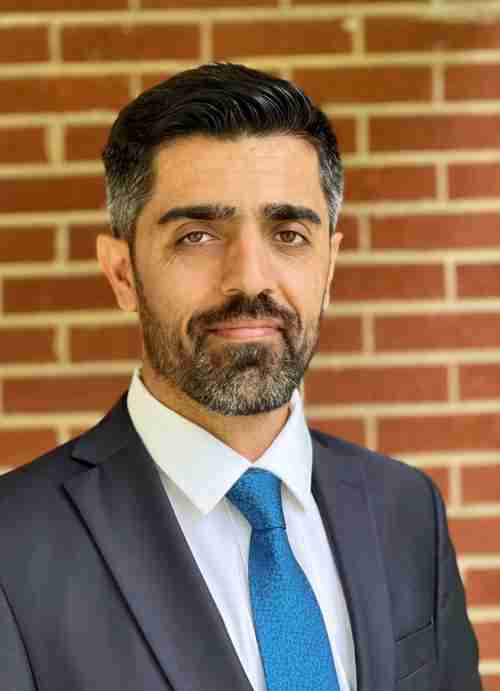
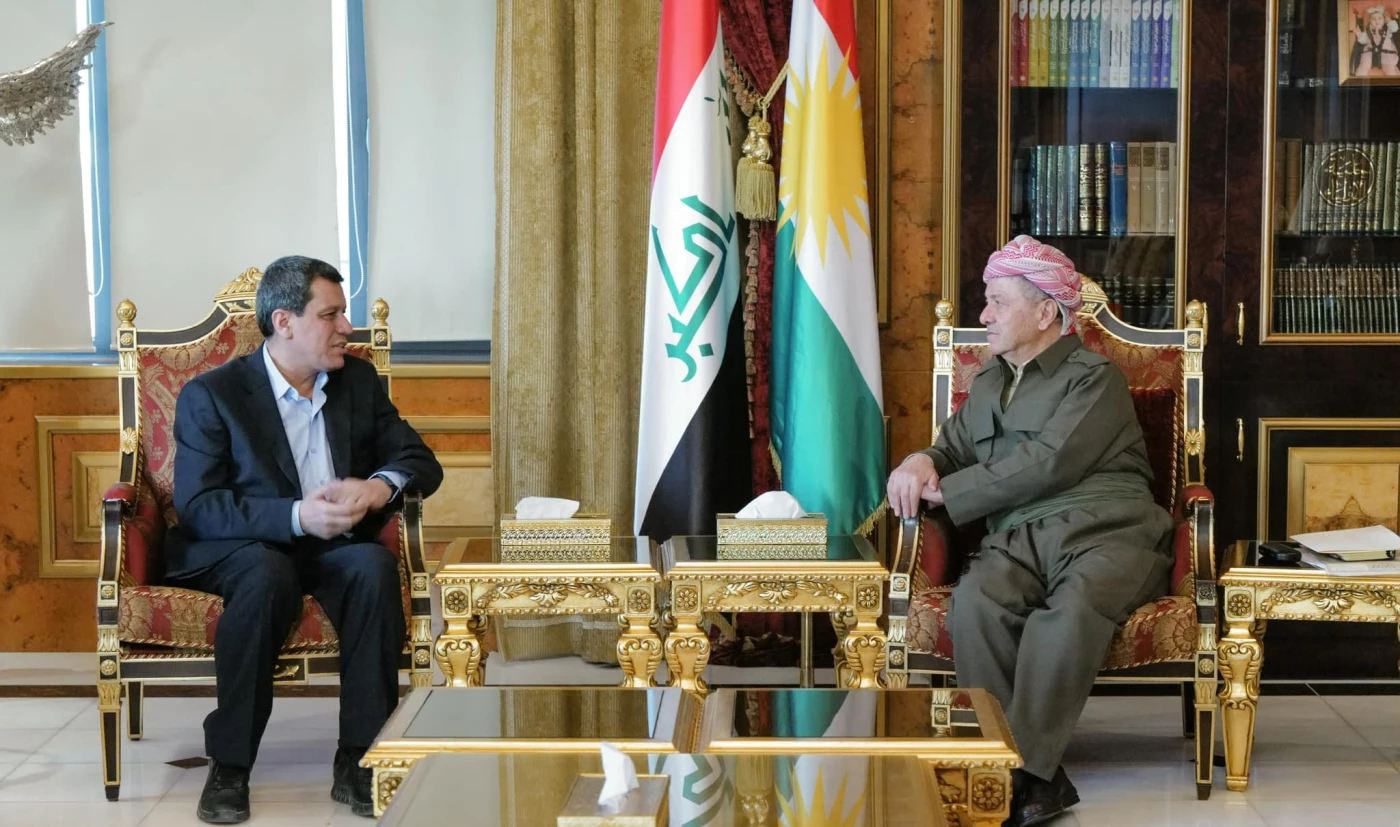
 Facebook
Facebook
 LinkedIn
LinkedIn
 Telegram
Telegram
 X
X
